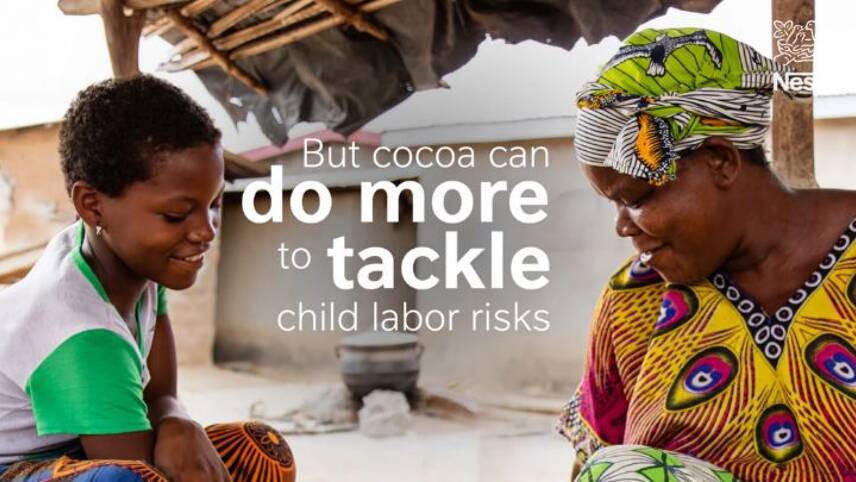Register for free and continue reading
Join our growing army of changemakers and get unlimited access to our premium content

Image: Nestle
The funding, Nestle has stated, will be split between workstreams to improve cocoa traceability, reduce the environmental impact of farms and support the human rights and livelihoods of cocoa farming communities.
The latter of these focuses has caught the attention of many international media outlets, partly because Nestle was the subject of a lawsuit around allegations of child slave labour last year, along with other major chocolate firms Cargill, Barry Callebaut, Mars, Olam, Hershey and Mondelez. That lawsuit was filed in February 2021 and blocked by the US Supreme Court in June, on the grounds that the alleged abuse happened outside of the US.
This was not an isolated allegation; organisations including Unicef and the International Labour Organisation (ILO) have conducted major studies on human rights protections across the global cocoa supply chains. Findings have generally been damning, revealing that thousands of minors are likely working illegally and that adult workers are also not having their rights upheld on many plantations.
Social research group NORC conducted a study in 2020 concluding that around 45% of agricultural households in Ghana and the Ivory Coast sent their children to work. This furthers social issues by limiting their education, and also poses a myriad of physical health and safety risks. Similarly, the US Government estimates that cases of child labour in the supply chain have increased by 2% since 2014 to more than two million children.
Nestle’s new funding will support an income accelerator programme, whereby farmers will be able to apply for additional payments if they keep sending their children to school. In this way, Nestle is aiming to address one of the root causes of child labour in the cocoa supply chain. Payments will be provided for those with children aged six to 16, via secure mobile service transfer. Third parties including the Rainforest Alliance and International Cocoa Alliance will be monitoring progress.
“Because cash flow throughout the year is often a challenge, cash incentives will be distributed when they are needed most,” Nestle said in a statement, “Based on feedback from farmers, this includes the back-to-school period and before the rainy season.”
Nestle has also pledged to improve its existing monitoring and remediation systems to identify, prevent and address child labour risks. Its systems have, since 2012, assisted more than 149,000 children, Nestle said in a statement.
Additionally, Nestle has pledged to improve the training made available to cocoa-growing families on topics including financial planning, entrepreneurship and gender equality.
Environmental sustainability
Aside from paying families to keep children in school, Nestle is launching new subsidy schemes for farmers improving environmental outcomes on their land.
Farmers will soon be able to claim extra payment for pruning and planting shade trees, as well as diversifying their incomes by growing other crops. Diversification of incomes could also include chicken farming and beekeeping. This approach could help to improve soil quality while also making farmers more resilient to any potential drops in cocoa production due to changes in weather patterns.
The payment schemes have already been piloted with 1,000 farmers in the Ivory Coast and will be expanded to a further 9,000 farming families there by the end of 2022. Through to 2024, it will be extended to Ghana. Further rollouts will then be completed through to 2030, with an aim to reach all cocoa-farming families in Nestle’s supply chains.
The IDH charitable foundation, which focuses on sustainable trade, has been appointed to provide independent oversight of all schemes funded through Nestle’s new subsidy schemes.
“Our goal is to have an additional tangible, positive impact on a growing number of cocoa-farming families, especially in areas where poverty is widespread and resources are scarce, and to help close the living income gap they face over time,” said Nestle’s chief executive Mark Schneider.
Sarah George


Please login or Register to leave a comment.